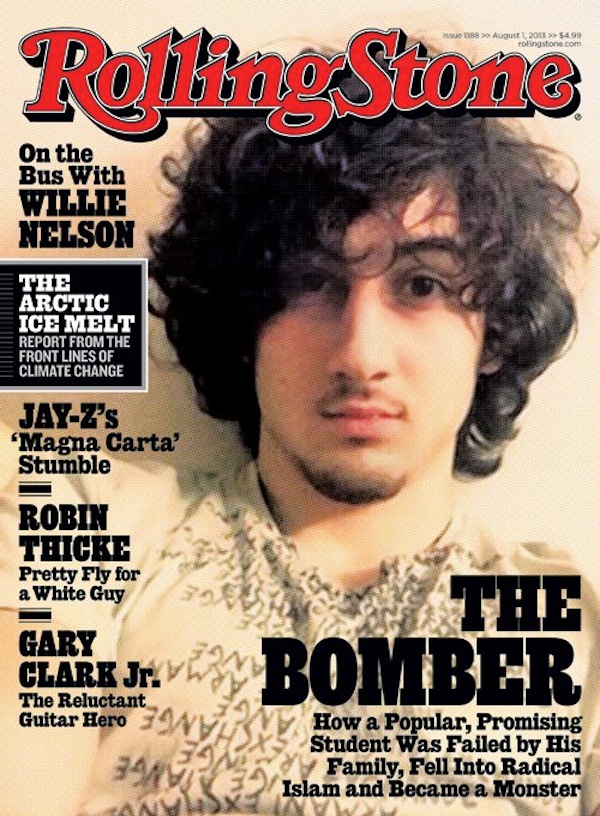The Dzhokhar Tsarnaev ‘Rolling Stone’ Cover Won Adweek’s ‘Hottest Cover of the Year’

Photo via Rollingstone.com/Facebook.com
Despite the outpouring of outrage from readers—most who were from the Boston area—being called out by Mayor Tom Menino, and having the issues stripped from the shelves in most Massachusetts convenience stores, Rolling Stone’s controversial Dzhokhar Tsarnaev cover was picked as Adweek‘s “Hottest Cover of the Year.”
Editors at Adweek said the August issue, which featured a photo of the alleged Boston bomber with his hair hanging over his eyes—reminiscent of a cover shoot with The Doors’ singer Jim Morrison, some complained—was “hands down the most memorable cover of the year.”
Adweek has two categories for the year’s best cover—the editor’s pick, which this year was the Rolling Stone issue, and the “Reader’s Choice” award, which went to People‘s “Royal Baby” cover.
Their annual list showcases “the most sizzling media brands and media people,” that the company feels “did the most outstanding job building audience, business and buzz in 2013.” Reader’s Choice polling ran through November, and the winners were celebrated at a December 2 banquet.
Here’s the rationale from the editors:
To some, he came off like a rock star. To others, his was the face of pure evil… Critics and advertisers howled that the mag was glamorizing a terrorist, and retailers like CVS pulled it. Still, the issue sold twice the number of copies at the newsstand as usual, proving again that while sex sells, controversy does, too.
When the cover was released, Rolling Stone was bombarded by complaints. Stores balked at the cover, and refused to sell it in Massachusetts, and Menino fired off a letter addressing his concerns with the photo.
But Rolling Stone stood strong against the opposition and explained that the cover was meant to highlight a “deeply reported account of the life and times of Boston bomber Jahar Tsarnaev,” with two months worth of detailed reporting and commentary from the suspect’s childhood friends and former classmates.
Even with the backlash, the cover doubled its typical newsstand sales from 60,000 to 120,000—even if people in Boston refused to buy it.


